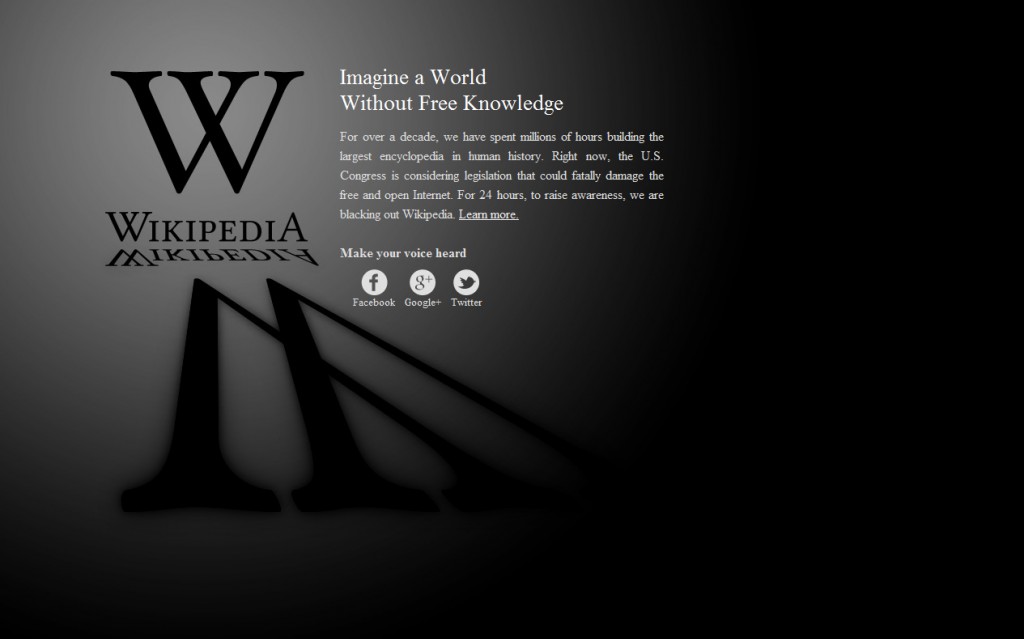For 24 hours on January 18th 2012, the world went black. Wikipedia, amongst thousands of other internet sites, called a complete blackout in protest of the proposed SOPA / PIPA Bill. As much as this probably left thousands of last minute assignments undone, multiple research junkies frustrated and many others confused, this move had a much greater impact: it led to the withdrawal of the SOPA / PIPA Bill (for now, at least). So what’s all the fuss about Wikipedia? Why is it so important? A presentation by Melissa Kuipers and Marko Kundicevic during the 10:00am Journalism class on February 10th 2012 cleared the waters.
“Wikipedia is a free, collaborative, non-profit website, which was founded by Jimmy Wales and launched on January 15 2001,” they explained, “It is written from a mutual point of view and is openly editable, but only by those within the Wikipedia community- Wikipedians”
According to the Wikipedia History page, the first distinguished proposal for an online encyclopaedia was made in 1993 by Rick Gates.The idea of an open source internet encyclopaedia was proposed by Richard Stallman. Wikipedia was then officially launched on January 15 2001, by Jimmy Wales and Larry Sanger, using the ideas and expertise of Ward Cunningham, who founded Wiki.
On Wikipedia’s FAQ page, however, only Jimmy Wales is highlighted as the co-founder. This may therefore be a source of confusion for those doing research about the site, and lead to contradictory findings among peers. It is for reasons such as this that Wikipedia is often criticized as being unreliable and inaccurate, even with the wealth of information that it has to offer to its viewers.
Nevertheless, Wikipedia has come a long way since its establishment. An increase in content, number of editors and general popularity are just but a few of the sites’ accomplishments, with projects such as Wikibooks, Wikinews, Wikiquote and Wikitionary adding a little oomph to plain old Wiki. Even the logo has seen quite a considerable amount of change through the years.
So how does this open source online encyclopaedia actually work? Wikipedia uses an open “Wiki” editing model. This means that practically anyone that visits the site could edit and create new articles, which are then added to the database. No article is possessed by its creator or editor, nor is it inspected by any recognized authority. Rather, the articles are agreed upon through consensus. The only problem is that with anyone having the freedom to post up information, how do you know what information is true? The Former Encyclopaedia Britannica editor-in-chief once described this by saying:
“The user who visits Wikipedia to learn about some subject, to confirm some matter of fact, is rather in the position of a visitor to a public restroom. It may be obviously dirty, so that he knows to exercise great care, or it may seem fairly clean, so that he may be lulled into a false sense of security. What he certainly does not know is who has used the facilities before him.” (Adopted from Wikipedia)
Whereas many critics may discredit Wikipedia and dismiss it as an inaccurate non-academic source, Wikipedia has taught a thing or two about citizen Journalism: we can see the fruits of collaboration; we can see the fruits of free contribution. And even though these fruits may not always be sweet, at least they’re growing.
By Joy Richu.
Sources:


